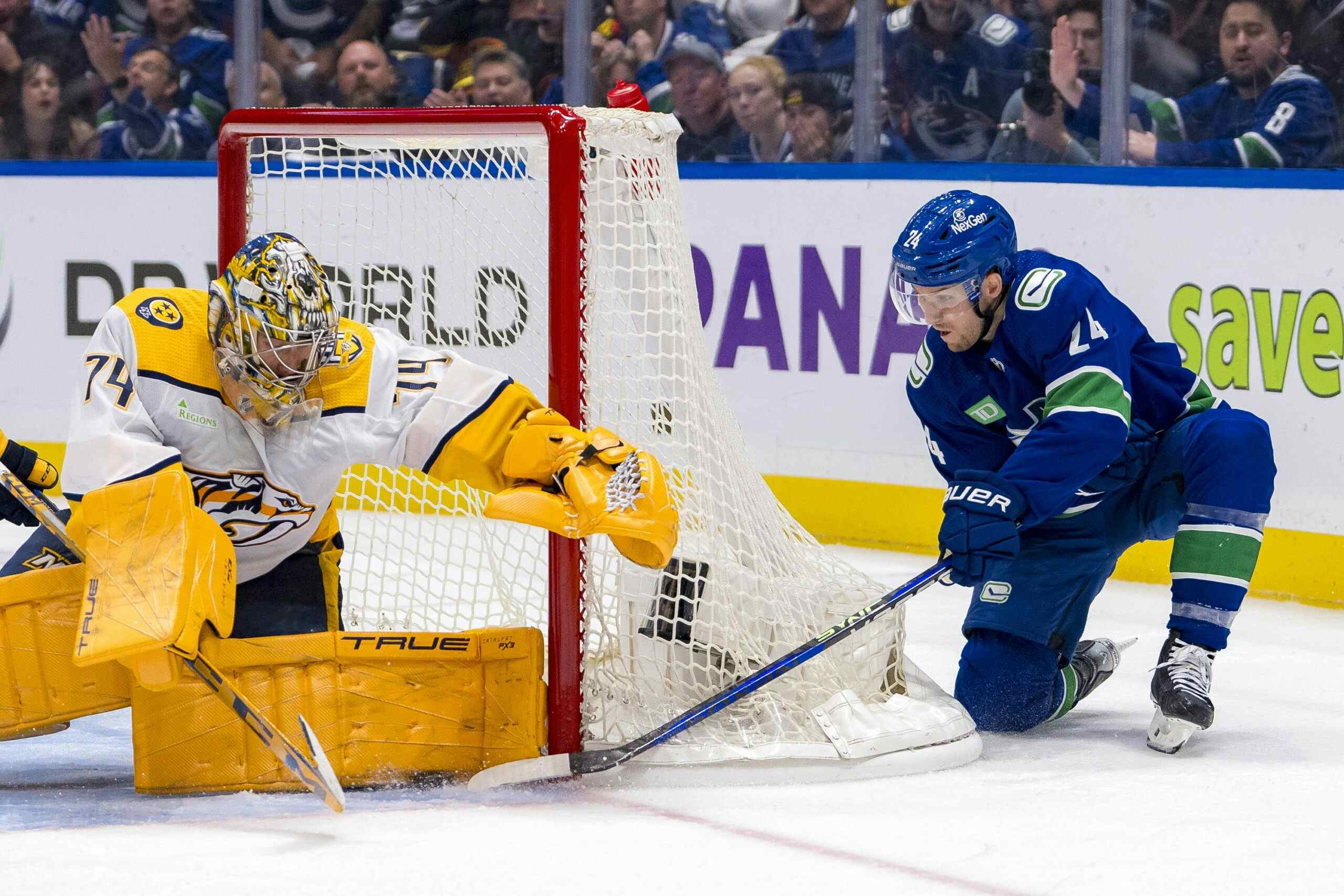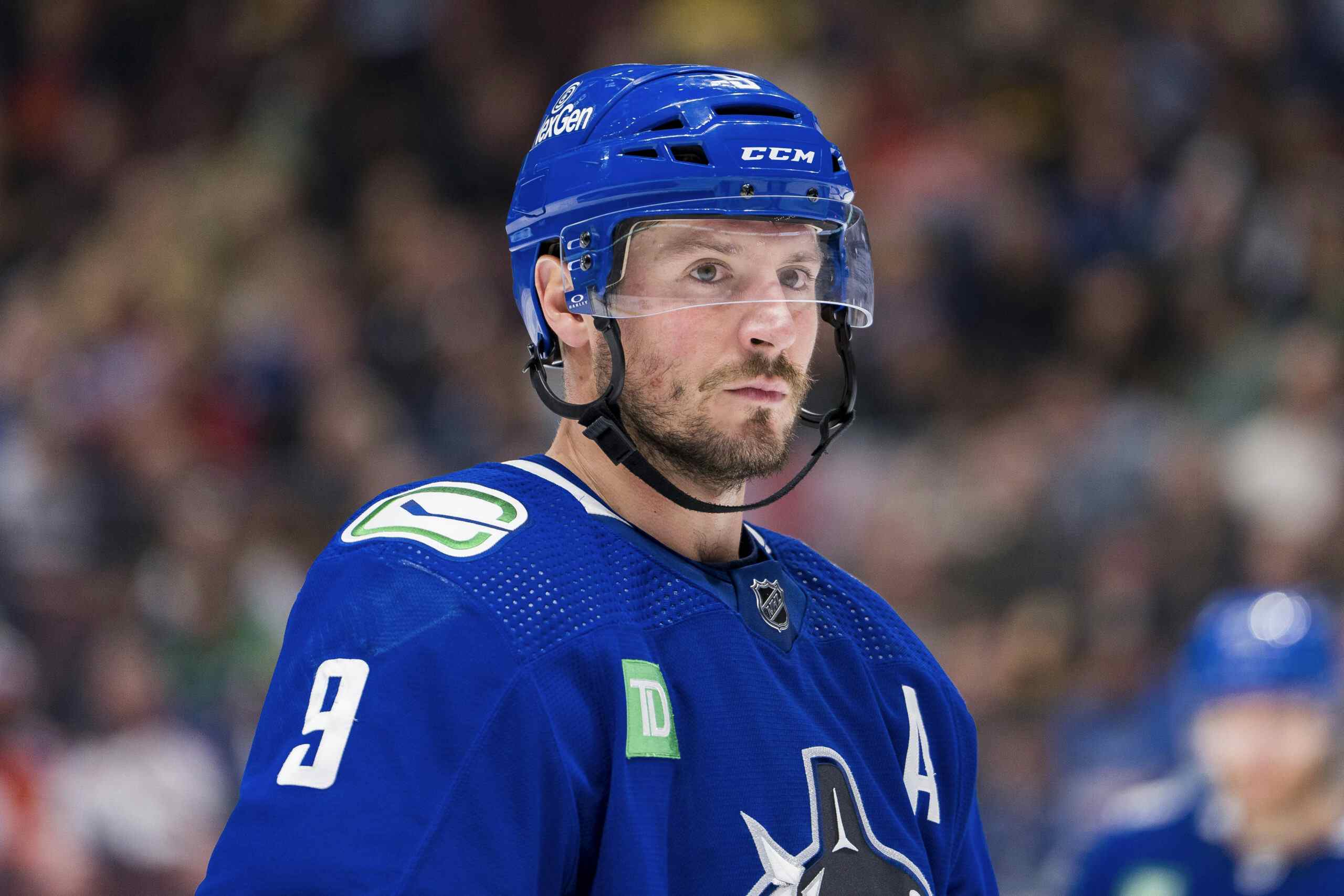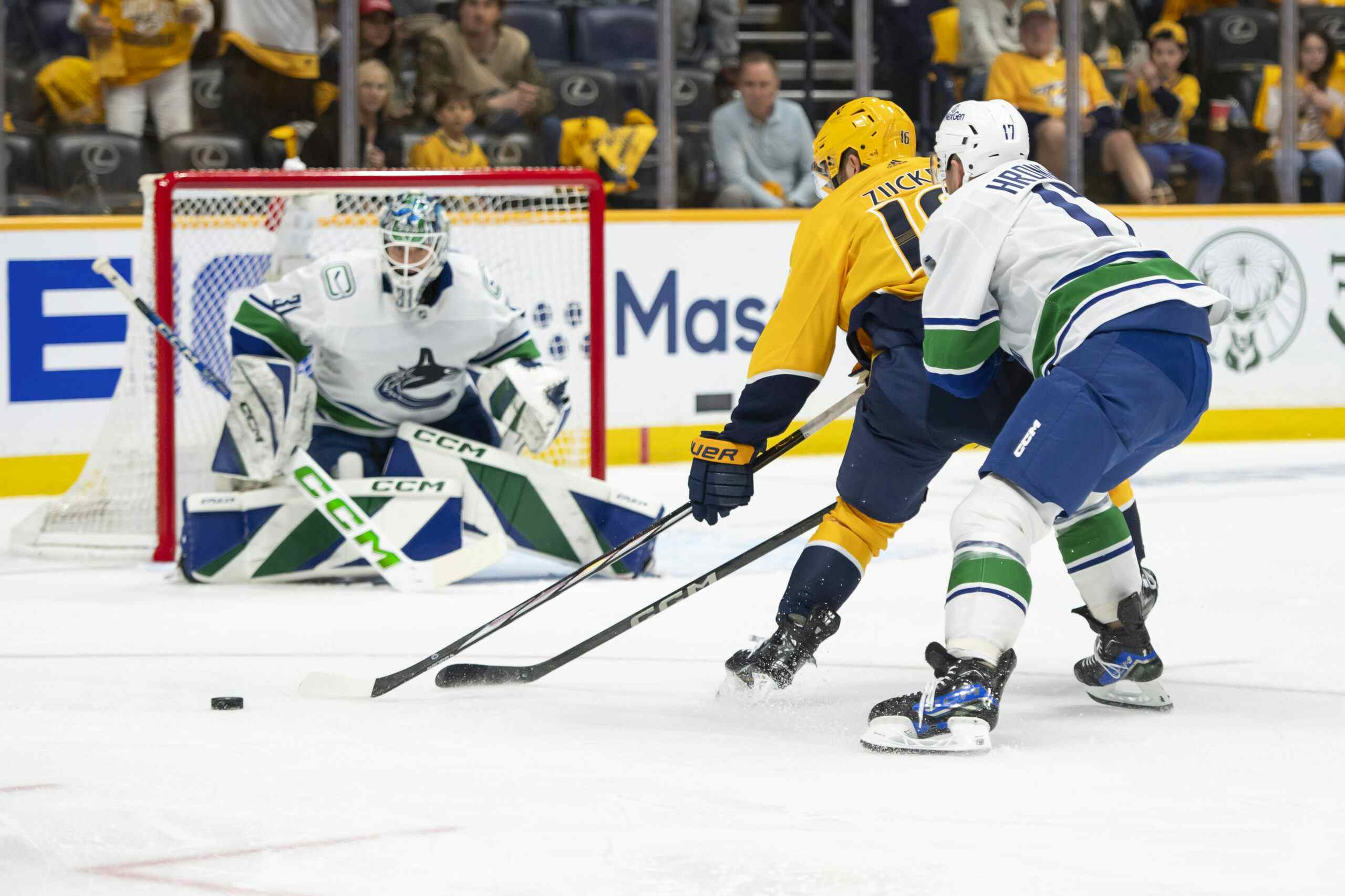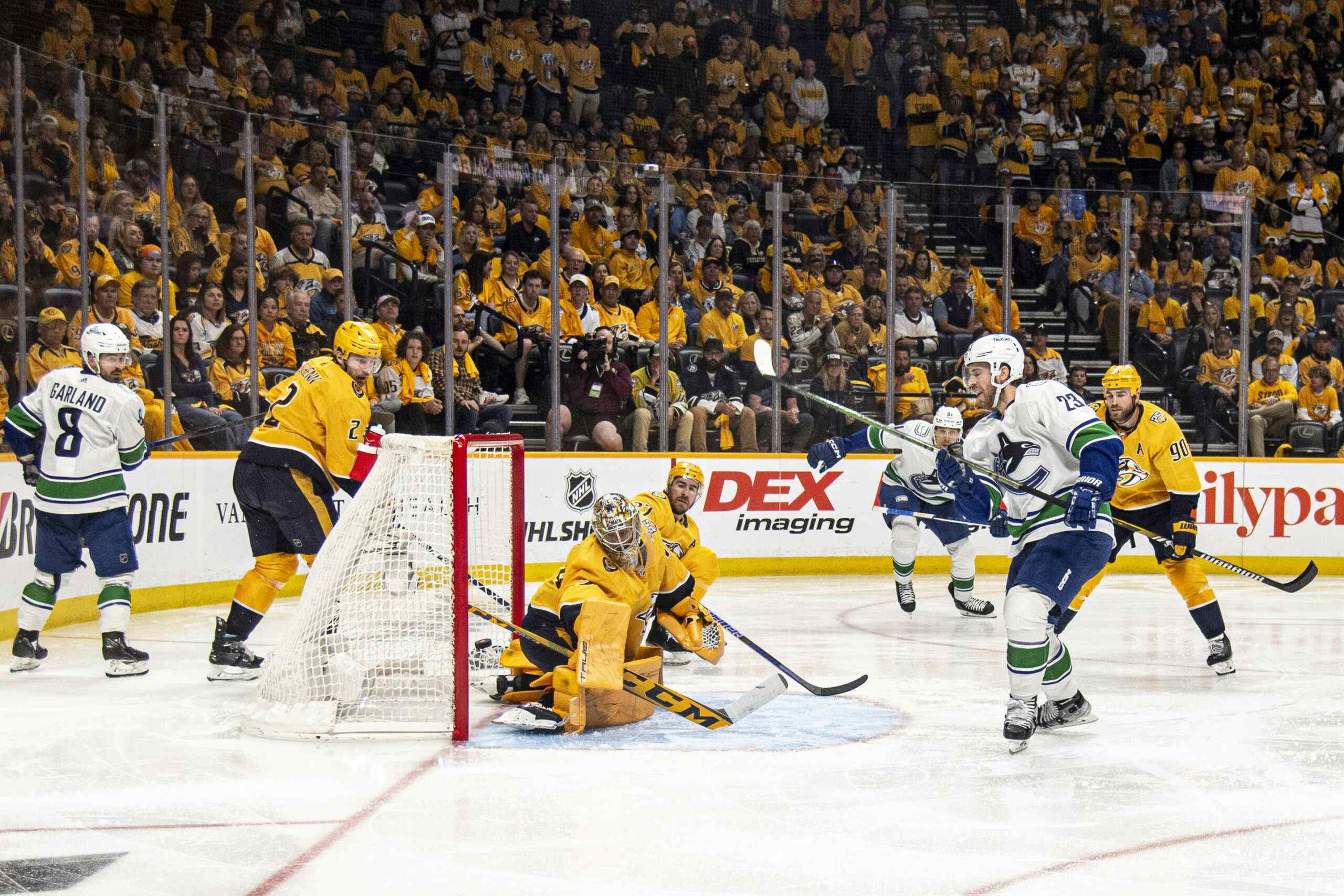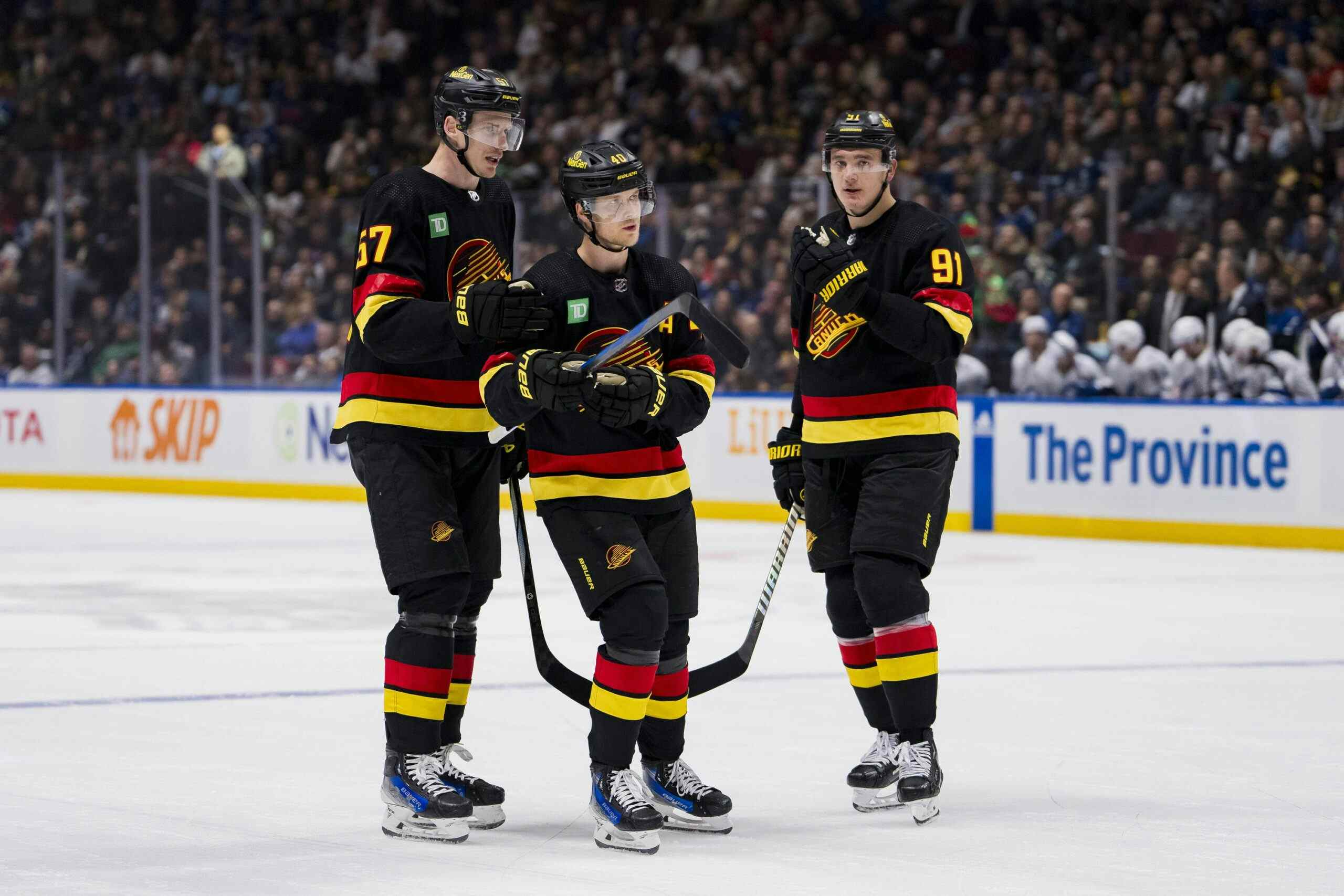First Look: Canucks Give Up Too Much For J.T. Miller
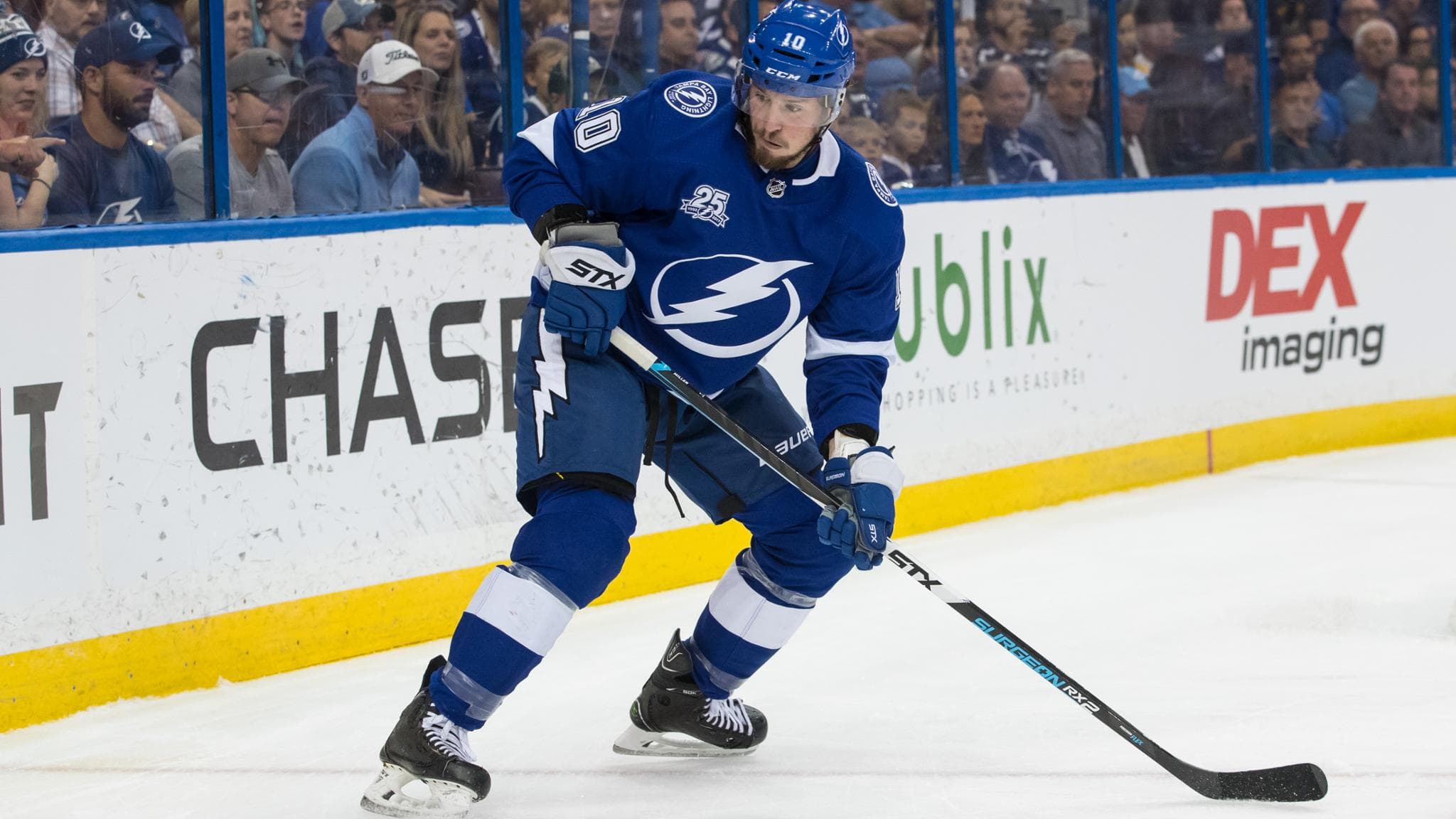
4 years ago
The Canucks finally made their big splash, dealing Marek Manzanec, a 2019 third-round pick, and a first round pick in either 202 or 2021 to the Tampa Bay Lightning for forward J.T. Miller on Saturday morning.
In a vacuum, Miller is a great addition to the Canucks’ forward group. Since being traded to the Lightning at the 2018 trade deadline, he’s been one of their best forwards by shot-share, playing mostly on the wing with either Steven Stamkos or Anthony Cirelli. His resume in New York was much more mixed, but the Rangers played a style that generally lent itself to poor underlying shot metrics, and Miller remained a fairly consistent producer of offense at even-strength and on the power play in New York.
Upon moving to a deeper team in Tampa Bay, Miller’s role was reduced and his even-strength offense diminished. He was the Lightning’s 11th-best forward in raw even-strength offense and even-strength P/60. Miller racked up a lot of secondary assists this year playing for one of the league’s best offensive teams and getting regular reps in on the man advantage. The decline in even-strength offense is a bit of a red flag, but Miller is only 26 and had a good track record of driving offense in New York, so it’s not a huge concern. The dip in his numbers can likely be traced back to going from a primary piece on a weaker team to a secondary piece on a team that’s been a legitimate cup contender for a few years now.
Stylistically, Miller seems like he’ll be a strong fit for the Canucks, who have a ton of shoot-first players on the wing. Miller is more of a distributor, which makes him a strong fit to play alongside Bo Horvat, who’s been in dire need of a winger to get him the puck for most if not all of his NHL career; and looks like a pretty obvious upgrade over every option the Canucks have on the wing other than Brock Boeser. There’s been a revolving door of wingers making appearances in the top six over the past few seasons who range anywhere from decent middle-six scorers to complete wildcards and Miller ought to at least provide some stability to Bo Horvat’s line. He can also play the middle, which gives the Canucks the opportunity to try different looks in their bottom-six depending on the opponent their matching up against.
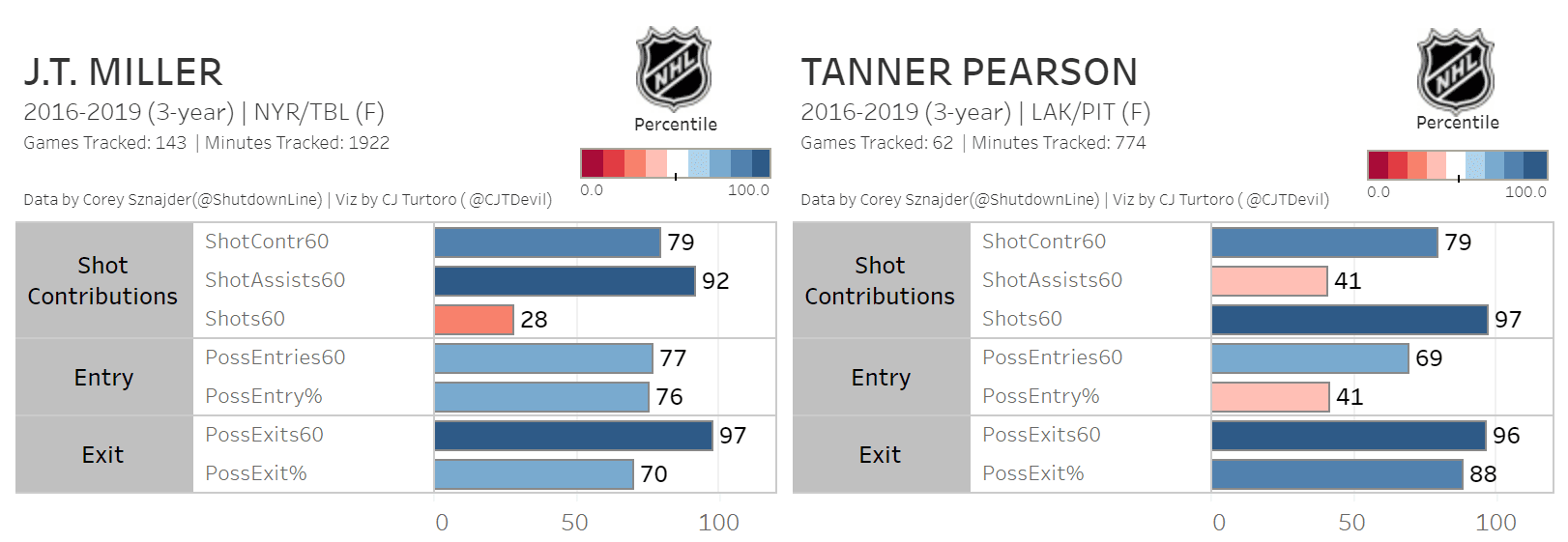
There’s been a lot of time spent on discussing the value of the pieces that were exchanged in this deal and the leverage the Canucks had over the Lightning given their cap crunch. Those criticisms are all valid, but something that hasn’t been explored nearly enough is the risk the Canucks took in dealing their first rounder in 2020 or 2021. The conditions of the deal stipulate that the pick Vancouver dealt to Tampa is lottery protected for the 2020 draft, but not in 2021.
By making this deal, the Canucks bet they could be a playoff team within the next two years. I think most prognosticators expect the Canucks to improve over the next couple of years, but the question of how significant their improvement will be remains up in the air. There’s a lot of uncertainty in the Canucks future and even if they improve on paper, only a couple of things need to go sideways for them to be in the NHL’s basement again.
Here’s a brief list of all the things that could sink the Canucks next season or the season after:
- Jacob Markstrom has a bad season. This scenario seems the most likely given recent history. Markstrom had a .912 save percentage in 2018-19, which was enough to earn him 28 wins. What got lost in the hype of a very strong finish to the season is that he put up the same totals in his previous season, but earned 5 less wins over the same number of starts. That suggests that even if Markstrom puts up similar numbers to last year in 2019-20, the team won’t necessarily see the same results. If Markstrom’s play declines even the slightest bit, you can probably erase the 3 or 4 wins adding J.T. Miller to the lineup could provide the Canucks with next season.
- Thatcher Demko isn’t ready to be a full-time backup. Even if the Canucks continue to ride Markstrom for 60 games like they’ve done over the past two seasons, they’ll still need someone to start the remaining 22 and give them a chance to win on most nights. Like most people in Vancouver, I believe in Thatcher Demko and want to see him succeed, but he’s played 10 games at the NHL level and is still basically an unknown commodity.
- The Canucks have injury trouble. It’s unlikely that the Canucks won’t lose at least one or two players at some point during the year, given their history. The big deciding factor is obviously who exactly ends up getting struck by the injury bug. Most fans will remember how unwatchable the Canucks were when Elias Pettersson went down with a with injuries this season, and there’s little reason to believe next year would be different if similar circumstances were to arise. Adding Miller will help the team’s ability to weather the storm a bit, but moving him to the middle in the event of an injury would bring them right back to square one when it comes to their lack of offensive wingers. On the back end, they’re still going to be heavily reliant on Alex Edler, who will be another year older and has missed 10 games in each of his last 4 seasons; and Chris Tanev, who’s been in the infirmary as often as he’s been on the ice the past few seasons and has been a shadow of his former self even when he’s been healthy. In net, Markstrom has generally help up well, but he’ll be turning 30 next season and all it takes is one ill-timed injury for the Canucks’ season to fall to shambles. At every position, the Canucks simply don’t have the depth to remain competitive if a key cog goes down next year and there doesn’t appear to be a clear plan to fix that problem by 2021, either.
- The teams around them in the standings improve. The Flames, Sharks, and Golden Knights don’t look like they’re going anywhere anytime soon, which means the Canucks best-case scenario is to battle for wildcard spot next year and likely the year after, too. The Arizona Coyotes had a surprisingly strong showing last year and were just 4 points out of the last wildcard spot in the West last season despite the fact that their leading goal-scorer was Brad Richardson. Even the slightest improvement from a player like Clayton Keller could be enough to vault them past the Canucks and into the wildcard race. The Oilers are still the Oilers, but they have two of the best centres in the game and a front office that no longer employs Peter Chiarelli, so it’s hard to see them being any worse than they were last season. At any rate, five teams from the Central Division made the playoffs last season and unless one drops out, the point will be moot anyway. The Canucks could very easily be the fourth-best team in the Pacific next year and the year after and still not make the playoffs.
Obviously, this is all complete speculation. All of these things could happen, or none of them could happen. They could all happen and the team could make the playoffs, or none of them could happen and they could still finish in the basement. No one really knows, and that’s exactly the point. Neither you, nor I, nor Jim Benning has the slightest idea how the next two seasons are going to go. With that in mind, those who have defended the trade cannot say that the Canucks will make the playoffs by 2021 with any more certainty than I can say that they won’t. It’s a gamble, and based on where the Canucks have spent most of the past 5 years, the risk of losing out on a high draft pick is greater than the reward of adding a 45-55 point player to the roster.
One of the biggest arguments that has been mounted in defense of the Canucks acquiring J.T. Miller is that he’s likely to be better than the player that will be selected with the pick the Canucks gave up anyway. Assuming the Canucks actually do manage to make the playoffs at some point over the next two seasons, that’s probably true. The question is at what point does the likelihood that J.T. Miller provides the Canucks with more value than their first-round pick cease to be a good bet? If they give up a pick in the 15-20 range, they can probably live with that decision, but if that pick ends up in the range of the top ten or even higher, the likelihood that the Canucks gave up a player that is not only flat-out better than what they got in J.T. Miller but also younger and more cost-controlled only increases.
It’s impossible to say how this will turn out. The Canucks have some good young talent in the system and a lot of cap space, so assuming they’ll make the postseason by 2021 is far from outlandish, but the only other relevant example of a team in a similar position to the Canucks giving up a first-round pick resulted in that team losing out on Bowen Byram. Could you imagine the uproar in this city if the Canucks had traded the pick used to select Bowen Byram on J.T. Miller? Heads would roll.
The difference is that unlike in Ottawa, if the Canucks don’t make the playoffs, the General Manager will not be around to witness the selection. He’ll be long gone, along with any chance of the team’s ownership seeing a dime of playoff revenue over the course of Bo Horvat’s best years.

